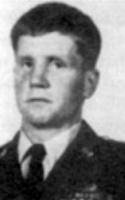
FILE – In this April 25, 1977, file photo, Joanne Chesimard, member of the Black Panther Party and Black Liberation Army, leaves Middlesex County courthouse in New Brunswick, N.J. Now known as Assata Shakur, Chesimard was convicted in 1977 of killing a New Jersey state trooper four years earlier, and was sentenced to life in prison but escaped and wound up in Cuba in the 1980s, where she continues to reside. AP Photo, File
By Camila Molina, cmolina@newsobserver.com
A county in North Carolina wrote a $15,000 check to Assata Shakur, also known as Joanne Deborah Chesimard, a woman whom the U.S. government has identified as a convicted murderer, fugitive and domestic terrorist.
Shakur was a prominent member of the Black Panther Party and the Black Liberation Army.
In the 1970s, Shakur was convicted for the murder of a New Jersey state trooper. Shakur escaped prison in 1979 and lived underground for the next five years, according to Vice.
In 1985 she fled to Cuba, where she received political asylum and continues to live today. In 2013, The FBI identified her as one of the agency’s “Most Wanted Terrorists,” offering $1 million and an additional $1 million offered by the state of New Jersey for information leading to her capture and return to the U.S.
So why would New Hanover County, a coastal community in North Carolina, write a check to one of the federal government’s top priority fugitives?
Shakur is one of the last Freeman family descendants sought by a private company that has purchased land near Freeman Park in Carolina Beach, North Carolina, Port City Daily reported. The Superior Court of New Hanover helped negotiate a selling price for the Freeman descendants and held the company’s payment to be given to the heirs.
A superior court judge signed a court order saying it was not aware of a legal reason to withhold the payment from Shakur, the daily reported, and on April 3 the Superior Court Clerk of New Hanover County wrote a check to Shakur for $15,351.39.
Although the land deal began more than 10 years ago, the sale was delayed until this April because at first Shakur’s whereabouts was unknown, and there were multiple attempts to contact some of her family members, based on court documents the daily reviewed.
Shakur made at least one appearance in the U.S. for the land deal in May 2015 when she went to Manhattan to sign a power of attorney to her sister Beverly Goins.
By August 2017, the same attorney who represented her during her murder trial began the process to secure the company’s payment through her sister.
The FBI and the Office of the U.S. Attorney are investigating whether any laws were broken during the deal, the daily reported.
She’s the first woman on the FBI’s most wanted list and is still being sought.







